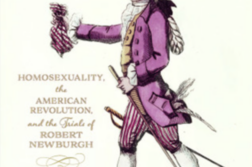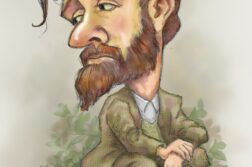At the end of his tandem review of my three memoirs, Ambidextrous, Men Who Loved Me, and A House on the Ocean, A House on the Bay, the respected critic Jesse Monteagudo, referring to the last of the three, wrote in a weekly online magazine, Gaytoday/badpuppy.com, that “Picano’s Fire Island excluded eighty percent of gay men.” He then appended a note indicating that 98 percent of these men died—as though there were somehow a cause and effect. The first statement is patently untrue. And, while the second sentence is accurate—it’s an approximate quote from the book—the linkage between the two statements is a problem, imposing an implied censure and blame directly upon the several thousand victims of AIDS and its ravages.
WHAT WAS Fire Island Pines and exactly who was included and who excluded? From 1965 to 1985, the years that I knew it, the Pines was one of eight or nine communities on a long sandbar that had grown at the edge of the Great South Bay, blocking the southern coast of central Long Island from the Atlantic Ocean.
Felice Picano’s three memoirs,including Men Who Loved Me, have recently been republished by Southern Tier Editions.





